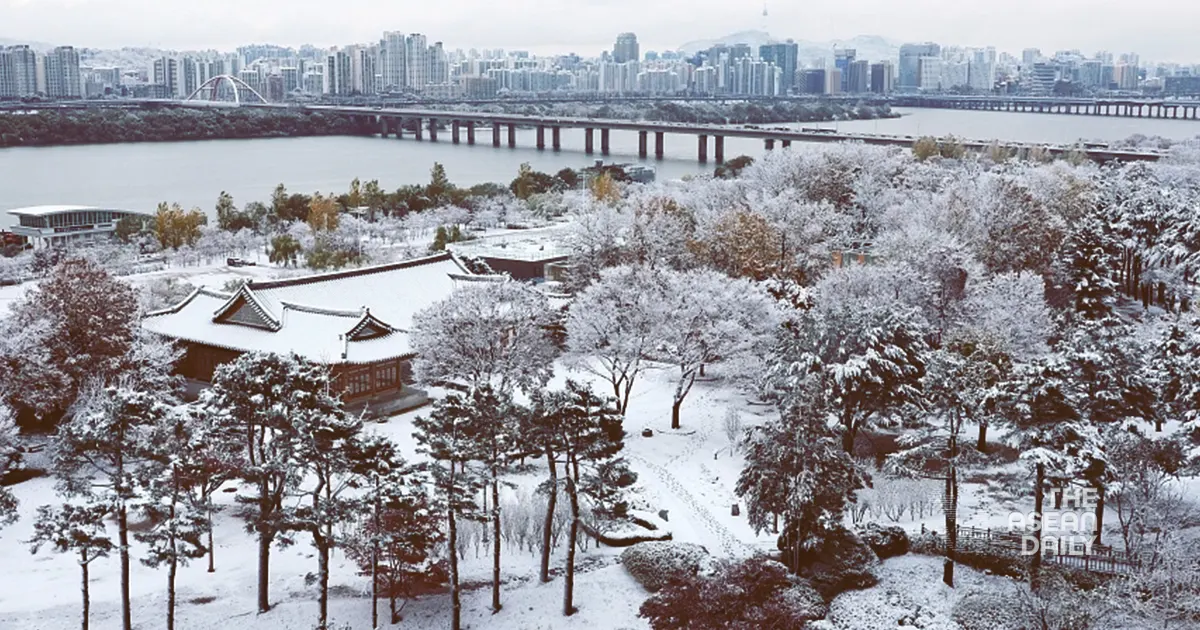28-11-2024 (SEOUL) Historic snowfall has paralysed South Korea’s capital and surrounding regions, leaving four dead and causing widespread disruption to transport networks in what meteorologists are calling one of the most severe November winter storms since records began.
The Seoul Metropolitan Area recorded more than 40 centimetres of snow by Thursday morning, marking the third-heaviest snowfall since meteorological documentation started in 1907. The unprecedented weather event has triggered a cascade of incidents across the nation’s infrastructure and transportation systems.
In a tragic turn of events, a snow-laden safety net at a golf driving range collapsed late Wednesday, resulting in one fatality and two injuries. In a separate incident, another individual lost their life when a protective tent buckled under the weight of accumulated snow at a car park.
The treacherous conditions on highways east of Seoul claimed at least two more lives, whilst a massive 53-vehicle pile-up in Wonju, Gangwon province, left 11 people injured, according to police reports.

The aviation sector has been particularly hard hit, with Incheon International Airport—the country’s primary gateway—experiencing significant disruptions. More than 140 flights were cancelled, whilst surviving services faced average delays of two hours. The maritime sector has not fared better, with 99 ferries across 76 routes suspended.
Educational institutions in Gyeonggi province, which encircles Seoul, received discretionary authority to close their doors on Thursday, as authorities grappled with the challenging conditions.
Meteorologists attribute this unusual November snowfall to a unique weather phenomenon: unseasonably warm sea temperatures west of the Korean Peninsula colliding with incoming cold air masses.
The extreme weather has not spared North Korea either, with state media reporting snowfall exceeding 10 centimetres in various regions between Tuesday and Wednesday.
Whilst weather warnings for the greater Seoul area were lifted by 10 am Thursday, transport networks continue to experience significant disruption as crews work to clear roads and restore normal operations.




